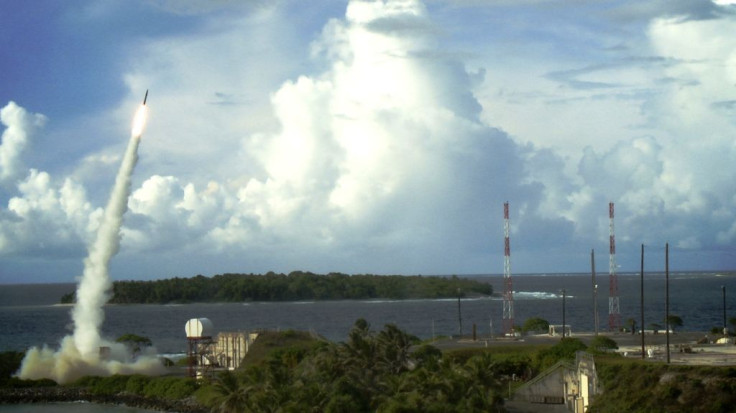Will Russia Go To War? THAAD Deployment May Trigger Missile Race, Moscow Warns

The deployment of a U.S. anti-ballistic missile system in South Korea will have negative consequences and affect regional stability, Russia’s foreign ministry said Thursday. The reaction comes after Washington began moving parts of the Terminal High Altitude Area Defense (THAAD) system earlier this week to counter North Korea’s growing nuclear threat.
Russia, along with China, has firmly opposed the THAAD installation over security concerns. However, both the U.S. and South Korea have maintained that no countries will be affected by the missile system and it will be used only to keep a check on North Korea.
"Media reports say that the deployment of the U.S. THAAD systems has begun in South Korea. Washington is taking practical steps in order to expand the U.S. global missile defense system, which will particularly involve the Asian-Pacific region," the Russian foreign ministry said in a statement.
"These developments are fraught with negative consequences for regional and global strategic stability," the statement read. "The security situation in the Asian Pacific region is already complicated but now another destructive factor has emerged that may further hamper efforts to solve the Korean Peninsula’s nuclear issue as well as trigger a regional arms race, particularly a missile race."
Read: THAAD Deployment Only To Counter North Korea's Threat, Mattis Says
In January, Russia and China agreed upon countermeasures to defend interests of both the nations and to maintain strategic balance in the Korean Peninsula. The two countries are of the opinion that the U.S. and South Korea will use THAAD to monitor Moscow's and Beijing’s activities. However, Washington and Seoul have dismissed the allegations.
The THAAD deployment is expected to be completed in two months, South Korea’s military officials reportedly said Monday. The first parts of the missile system arrived at the Osan Air Base located near the city of Pyeongtaek on Monday, about 40 miles from the South Korean capital Seoul.
The missile system is capable of intercepting short-, medium- and intermediate-range ballistic missiles and has long-range radar. It is also designed to intercept North Korea’s intermediate-range ballistic missiles.
The deployment will be done on a land in the Seongju region, which is a part of a golf course owned by the South Korean conglomerate Lotte Group. However, the move has drawn criticism from locals over health and environmental concerns due to the powerful radar waves from the system’s battery.
On Friday, several South Koreans gathered outside the U.S. embassy to protest the deployment of the anti-ballistic missile system.
© Copyright IBTimes 2024. All rights reserved.






















